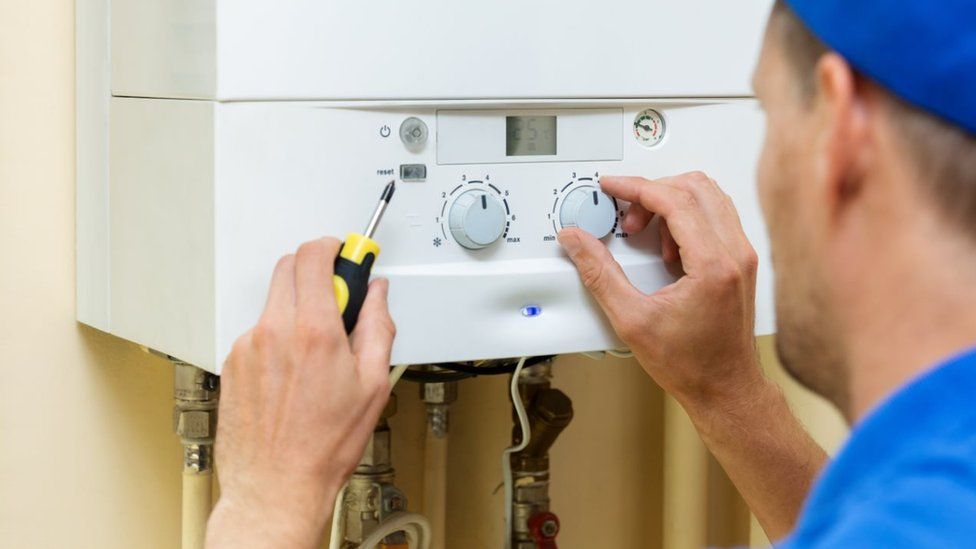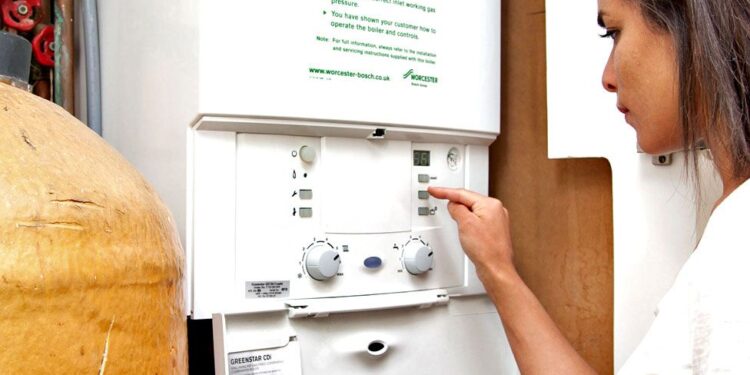Gas boilers are one of the most common central heating systems in the Western world — transforming gas directly to heat is far more efficient than transforming electricity to heat, and this has made gas boilers very common throughout residential areas in all major cities.
But, this doesn’t mean gas boilers are perfect and cheap. On the contrary, as recent events surrounding gas supplies in Europe show, gas prices can vary wildly, and this can impact your energy bills quite a lot.
Thankfully, there are a few simple steps that you can take that will help you save money with a gas boiler. In this article, we’ll go over the most prominent tips and tricks you can use to save money and energy when having a gas boiler as your central heating system.
Boiler Maintenance
Mandatory annual maintenance contributes to energy savings. It helps maintain the performance of all types of gas boilers. Any fuel leaks are identified and repaired. This limits the consumption of natural gas/propane thus reducing energy costs.
Regular maintenance of the heating system prevents breakdowns. If there is noise in the pipes, don’t hesitate to check the radiators and see if there’s any problem that requires repairing. If the heat is insufficient, instead of buying supplementary heating systems, check if there are any problems with your boiler. Maybe some low-cost repairs and maintenance can restore the boiler’s performance and eliminate the need to spend money on additional heating elements. Installing a low-loss header, for example, can possibly improve the efficiency of your boiler substantially — and you can buy these products here: https://culmstoreseltermltd.co.uk/19-low-loss-headers.
All of these actions will ultimately help lower your bills. You might not save a lot of money in the short term, but these regular maintenance jobs add up to significant cost savings over time. This is not to mention that they will also extend the life of your boiler, which costs tens of thousands of dollars to replace.

Keeping Temperatures Consistent
Consistent settings are recommended for all heating systems. This is especially true for gas boilers. They are high performance and efficient systems, but they are also sensitive pieces of equipment that require time (and energy) to adjust. They do not deal with extreme variations very well.
Take underfloor heating for example — usually, people set the temperature extremely high because they think “it’ll heat up faster”, and once it heats up, they slowly turn down the temperature. The reality is, however, due to how floor heating works, it actually doesn’t heat up faster when you turn temperatures up. This behaviour only results in more energy expenditures with no tangible benefits.
Agencies and homeowner associations usually advise a temperature of 19°C in the living rooms and a temperature of 16°C in bedrooms. This is the best compromise between savings and comfort. Indeed, reducing maintenance temperature from 20°C to 19°C in your central heating system means around 7% energy consumption (this probably means saving around a hundred dollars each year). Aside from reducing maintenance temperatures, as we mentioned above, the most important thing is to keep temperatures consistent.
Install Controls
Generally, all of us have certain routines and rhythms in our lives. When we’re out for work, we don’t need active heating in our homes. When we are getting ready for bed, we generally want a warm atmosphere. These are just examples of how your needs for heating change throughout the day.
Room thermostats allow you to better manage the central heating system in your home. If you properly program your central heating system to start operating an hour before you’re back home and wind down during your working hours when you’re out, you can reduce your energy consumption by up to 15%.
Temperature regulation devices are compatible with many types of central heating systems (gas boilers included), and they allow you fine control over the atmosphere in your home. Advanced models will give you the possibility to adjust the temperature room by room. That means you can make the bedrooms cooler and your living room warmer. It all depends on which temperatures in each room make you most comfortable.
Insulate Your Home
Energy consumptions from your central gas boiler also depend on the thermal performance of your home. You can improve the insulation of the roof, floors and walls (interior/exterior). This way less heat will escape outside, and this means the gas boiler will need to do less work to maintain the temperature in your home. This all ultimately mean less fuel consumption and thus smaller energy bills.
At the same time, consider insulating the pipes of your heating system. This means they’ll spend less energy when they move through the cooler areas of your home. This might not sound substantial, but the energy savings do add up.





